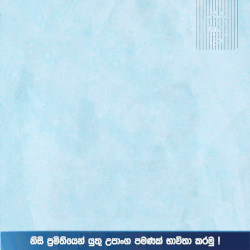The betrayal is no longer a suspicion. It is now documented, calculated, and publicly exposed thanks to a leaked letter from the Public Utilities Commission of Sri Lanka (PUCSL), dated April 3rd, 2025. The letter reveals that while Sri Lankan solar developers were offering clean energy at Rs. 27 per unit, the government approved a diesel-based deal at Rs. 72.11 per unit a staggering difference that can only be explained by one thing: design.
This is not a miscalculation. This is engineered dependency, where domestic options are destroyed to justify foreign intervention and the foreign hand in this case is becoming unmistakably clear: India.
For decades, India has advanced its transnational energy strategy under the banner of One Sun One World One Grid (OSOWOG) a vision to control regional electricity flow through a centralized grid spanning South Asia, with India as the hub. Sri Lanka has been eyed not as a partner, but as a plug-in extension. Proposals for interconnection with the Indian grid date back to the early 2000s, but the real push has gained momentum in the last five years. It is no coincidence that as India’s ambitions surged, Sri Lanka’s domestic renewable bids were buried, stalled, or rejected clearing the path for geopolitical capture disguised as cooperation.
The leaked PUCSL letter confirmed that the Cabinet was presented with manipulated figures gas prices, diesel prices, and exchange rates from 2021, all used in 2025 to push through a decision that locks Sri Lanka into long-term fossil fuel dependency, bleeding out our foreign reserves in exchange for imported energy and imported influence.
But let us be brutally honest: this hijacking could not have happened without local collaborators. Since 2000, Sri Lanka’s Power and Energy Ministry has rotated through a dozen names each one complicit, whether through action or silence, in building a system that has increasingly disempowered the nation’s energy autonomy:
- Anuruddha Ratwatte (2000–2001)
- Karunasena Kodituwakku (2001–2004)
- Susil Premajayantha (2004–2005)
- John Seneviratne (2005–2007)
- Mahindananda Aluthgamage (2007–2010)
- Champika Ranawaka (2010–2015)
- Ranjith Siyambalapitiya (2015–2018)
- Ravi Karunanayake (2018–2019)
- Mahinda Amaraweera (2019–2020)
- Dullas Alahapperuma (2020–2022)
- Kanchana Wijesekera (2022–2024)
- Anura Kumara Dissanayake (2024–Present)
Under each of these tenures, the public has been sold the language of “progress,” “development,” and “regional cooperation.” Yet the result is the same: our national grid has become vulnerable, our pricing manipulated, and our long-term energy planning handed over to external actors with strategic interests not humanitarian ones.
So we now ask: How far has the damage gone? And more importantly, can it still be reversed?
The damage is deep but not irreversible.
What Must Be Done — Now
1. Halt All Foreign-Controlled Grid Integration Talks
Sri Lanka must immediately suspend any discussions related to grid interconnection with India or any foreign government until a comprehensive national audit of energy security and sovereignty is conducted.
2. Declassify All Power Purchase Agreements
Every deal including the Rs. 72 diesel contract must be made public. If clean solar proposals were rejected, the responsible officials must be named and held accountable.
3. Reopen Rejected Renewable Proposals
Every solar and wind bid rejected in the last five years must be re-evaluated on public record, not in boardrooms closed to scrutiny.
4. National Renewable Energy Commission
Create an independent, non-political commission to oversee Sri Lanka’s energy transition — one that reports to Parliament, not private corporations.
5. Public Inquiry on Ministerial Accountability
Establish a formal inquiry into the role of former Power and Energy Ministers in suppressing domestic renewables and advancing suspicious foreign agreements.
6. Introduce the Energy Sovereignty Act
A new law must be passed to prohibit any foreign government or private entity from owning critical infrastructure in Sri Lanka’s energy transmission or generation network.
Final Word: We Are Not Powerless
We are being told there is no choice that Sri Lanka must be plugged into regional grids and fossil fuel dependencies because we are too small to stand alone.
That is a lie.
We have sunlight. We have engineers. We have land. What we lack is political will and national backbone.
This is not just an energy issue. This is about our freedom to decide our future, unit by unit, watt by watt. The Nationalist will not allow this betrayal to pass in silence. Nor should you.
The people of Sri Lanka were not consulted. But we are wide awake now.
Written By Guest Writer












 Lanka Rahas Web
Lanka Rahas Web